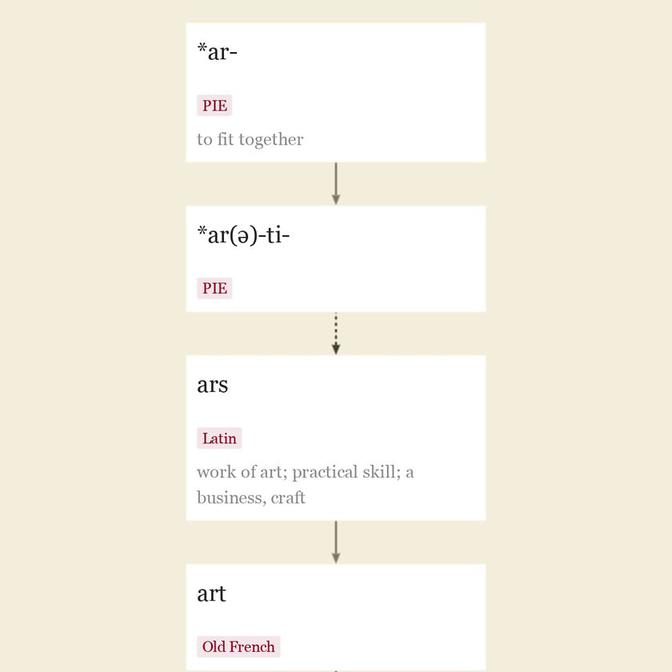state-of-the-art adj.
1961, from noun phrase (1816), from state (n.1) + art (n.).
Entries linking to state-of-the-art
c. 1200, "
The Latin word was adopted into other modern Germanic languages (German, Dutch staat) but chiefly in the political senses only. Meaning "
He [the President] shall from time to time give to the Congress Information of the State of the Union, and recommend to their Consideration such Measures as he shall judge necessary and expedient. [U.S. Constitution, Article II, Section iii]

early 13c., "
In Middle English usually with a sense of "
In science you must not talk before you know. In art you must not talk before you do. In literature you must not talk before you think. [Ruskin, "The Eagle's Nest," 1872]
Supreme art is a traditional statement of certain heroic and religious truths, passed on from age to age, modified by individual genius, but never abandoned. The revolt of individualism came because the tradition had become degraded, or rather because a spurious copy had been accepted in its stead. [William Butler Yeats, journal, 1909]
Expression art for art's sake (1824) translates French l'art pour l'art. First record of art critic is from 1847. Arts and crafts "
updated on October 10, 2017